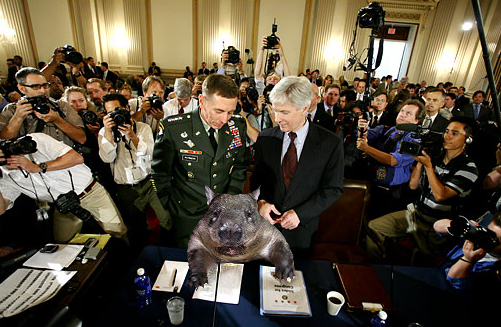Thinking and talking a lot about social networks in my day job at the moment, particularly the old chestnut: "how do you balance risk against viralocity?" In other words, how do you ensure you don't kill the growth of your nascent social network by over-regulating what gets published? Will moderating content too much kill the pavlovian reward of "post-reply-reply-to-reply-repeat" that makes a social network sticky and compelling?
Why does that matter? Because woven tight into the good stuff, growing like weeds, you'll always find weird stuff also growing on your social networks, no matter what original purpose it has. Show me a user-generated content database, I'll show you some weird shit in there, every time.
Further, the line between "weird" and "bad" is wiggly, broad and fuzzy, with transparency set at >10% and sporting extra-aliased edges. Further, "bad" comes in a wide variety of flavours, including "bad for business", "bad for conservative families" and "bad for the legal budget line".
"Probably won't happen" is not an answer lead counsel is ever happy with, but most of us live our entire lives sheltering under it. As in, "I could be killed by a block of frozen pee falling from an airliner passing overhead, but... it probably won't happen".
To wit: vombatus ursinus.
A great example of bizarrely funny social action on Flickr: the "Better with a wombat" photo pool, where a small group of people with too much Photoshop-foo come together to insert wombats into photos. This classic example from Mike Monteiro has all the hallmarks of a great master: the wombat image has been inserted in front of the two men, above the documents on the table and behind the microphone, and the shadows cast on the papers and the shared perspective of the wombat and the media event photos combine to make it look like... well... a wombat at the Whitehouse.Should it be there? That's a much easier question to answer than "Now it's there, should we remove it?" For every hour you waste anticipating the day you get asked the former, you'll waste 100 hours answering the latter again and again. There are few defamation case law precedents covering wombat insertion, fewer still case studies of conservative advocacy groups pressuring advertisers to pull media from sites featuring wombat-related satire. And none at all to suggest that this sort of wombat photo file sharing encourages bestiality or other illegal activity. Meanwhile, what do you do? The clock is ticking, the needle on the viralocity guage on your social network platform's dashboard interface is falling fast... what do you do?
Anytime someone tells you that your social network can and should be planned and closely moderated, remember this photo and the community that created it. Then ask yourself:
- Do you really want to employ moderation staff to consider whether this stuff should be encouraged/discouraged/removed?
- Ready to author and maintain terms of use agreements that anticipate this kind of random act? Up for authoring and maintaining the moderation guidelines your moderation team will need to refer to before acting on this image?
- Think you can anticipate the spectrum of human weirdness your network might reveal and have all this in place, ready to strike it down before someone gets offended?
I don't. Instead, I say: let Petraeus and Crocker mount legal action first, which... probably won't happen. "Probably won't happen" is not an answer lead counsel is ever happy with, but most of us live our entire lives sheltering under it. As in, "I could be killed by a block of frozen pee falling from an airliner passing overhead, but... it probably won't happen".
Meanwhile, you have ample time to come up with a team process for rapid deletion and retraction. Few legal threats proceed once the content has been removed and a public retraction and apology issued. Fewer still result in signiciant material damages. Which you can fund from the savings you'll have made on legal and moderation services.
Meanwhile, wombats can roam free, doing what wombats do best: driving repeat visits, new content, new referrals, improving search relevance, increasing advertising impressions, and, of course, digging the largest burrows you are ever likely to see.




